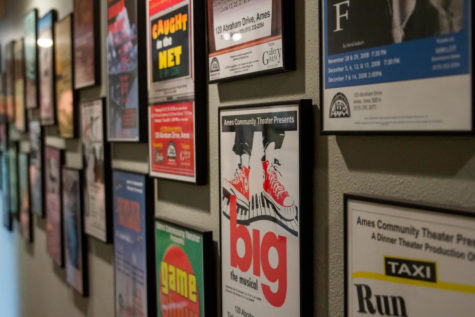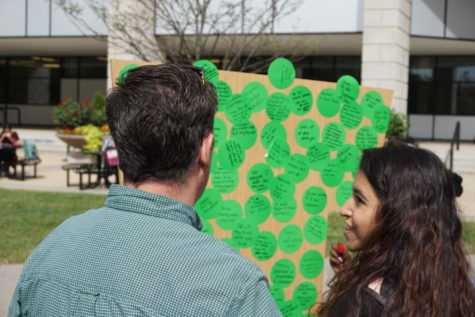Class do’s and don’ts
Hayley Hochstetler/Iowa State Daily
Large lecture auditoriums, like the one in room 127 of Curtiss Hall, can make it difficult to stay engaged during class.
August 17, 2015
Do’s
Do keep your syllabus at your side.
A college syllabus often contains info that will be useful all the way until the end of the semester. Class schedules, grading scales, assignments, deadlines and professor contact information are all valuable pieces of knowledge to have on hand.
Do stay up to date on Blackboard.
By keeping up with your grades and knowing how you’re doing in each class, you’ll know what your strengths and weaknesses are when it comes time to study for exams.
Do keep your eyes peeled for upcoming assignments.
Some professors won’t announce when homework due, instead leaving it to the syllabus or class schedule.
Do stay mentally engaged.
You won’t learn much from a long lecture if you spend the entire time counting down the minutes, so make sure you’re actively thinking about the subject matter.
Do get the contact information of your group-project partners as soon as you meet them.
Trying to figure out how to get hold of your classmates adds a lot of frustration to an assignment.
Don’ts
Don’t assume every piece of classwork is weighed the same.
The value of homework and exams varies from course to course, so make sure you know where the bulk of the class points lie.
Don’t skip classes because they seem easy.
Missing a class or two of a course you’re doing well in may seem harmless, but entertaining this habit can lead to a downward spiral. Getting left behind and lost is a stressful situation, so stay on top of your learning.
Don’t write off a class just because it isn’t directly applicable to your field of study.
Learning outside of your area of expertise makes you a more-rounded individual, and getting good grades is much easier in a class you’re enthusiastic about than in one you think is pointless.
Don’t wait until the last minute to study for exams or work on large projects.
It may seem obvious, but a college essay or project requires a lot more preparation and forethought than a high-school project.
Don’t be afraid to ask your professor questions.
Even if you’re shy about raising your hand in class, you can meet your professors one-on-one during his or her office hours.

















